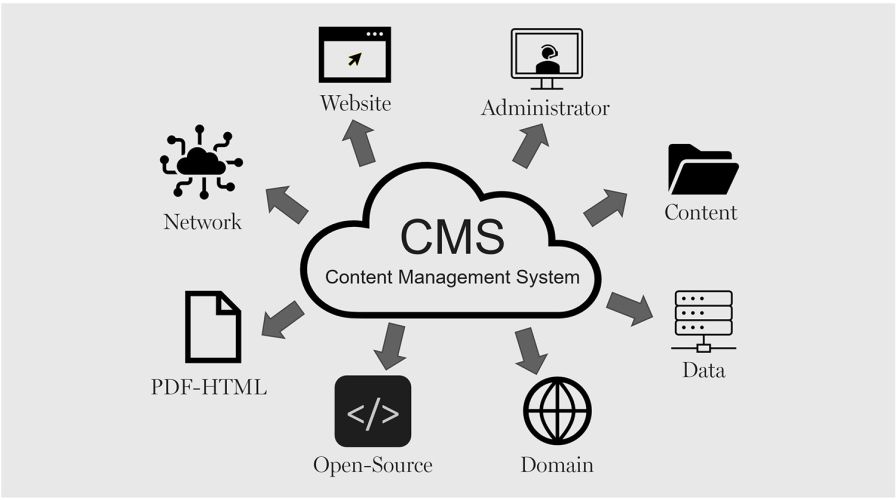![How to Create Good Video Content: 23 Things to Know [Examples] 1 VIDEO CONTENT](https://nicrest.com/wp-content/uploads/2024/10/VIDEO-CONTENT.png)
Video is a powerful storytelling medium: Not only can it serve as a prime proving ground for your business’ promotional campaigns, influential ideas, and experimental content efforts, video’s emotionally resonant combination of sound, motion, and visuals can also help you drive deeper, more satisfying relationships between your brand and its audience.
23 Tips for Creating Good Video Content
1. Understand Your Audience
Before creating video content, understand who your audience is and what they are looking for. Research your target demographics, such as age, interests, and preferred social platforms. This data will help you create content that resonates with viewers.
2. Choose the Right Platform
Each platform has unique characteristics and audience expectations. For instance, Instagram and TikTok favor short, engaging clips, while YouTube and Vimeo are ideal for long-form content. Tailor your videos to the platform where they’ll be published.
3. Focus on the Story
Good video content is rooted in storytelling. Whether it’s a product demonstration or a brand story, make sure there’s a clear narrative that guides viewers through the video and makes it more memorable.
4. Start with a Strong Hook
The first few seconds of your video are critical. To capture attention, begin with a captivating hook, such as an interesting question, a bold statement, or a compelling visual.
5. Keep It Short and Sweet
In an era of short attention spans, conciseness is key. While some topics may require longer videos, always aim to deliver your message in the shortest time possible without sacrificing quality.
6. Invest in Quality Production
Investing in quality video equipment or working with professional videographers can make a significant difference in your content. High-quality video and audio help convey credibility and professionalism.
7. Use Captions and Subtitles
Not everyone watches videos with the sound on, especially on social media. Adding captions or subtitles increases accessibility and engagement.
8. Optimize for SEO
For platforms like YouTube, SEO can improve your video’s visibility. Use relevant keywords in your video title, description, and tags. Additionally, consider adding a transcript for enhanced SEO and accessibility.
9. Leverage User-Generated Content
User-generated content (UGC) adds an element of authenticity to your brand. Encourage customers to create and share videos about their experience with your products or services, and share these on your channels.
10. Add a Call to Action (CTA)
Every video should have a clear purpose. Include a CTA, whether it’s to visit your website, subscribe to your channel, or follow your brand on social media. CTAs help drive conversions and engagement.
11. Use Engaging Thumbnails
A thumbnail is the first thing a viewer sees. Use a high-quality, engaging thumbnail that accurately represents your video’s content. Avoid clickbait, as it can harm your credibility.
12. Consistent Branding
Ensure your brand identity is clear in your videos. This can include a logo watermark, consistent color schemes, or branded intros and outros. Consistent branding reinforces brand recognition.
13. Create Valuable Content
Offer value in every video, whether through education, entertainment, or inspiration. High-value content keeps audiences coming back for more and builds a loyal following.
14. Experiment with Formats
Different video formats can appeal to different audiences. Experiment with tutorials, product reviews, behind-the-scenes videos, and live streams to see what resonates with your viewers.
15. Plan Your Content Calendar
Just like with blogs or social media, a content calendar is essential for planning video production. A well-structured calendar allows you to maintain a consistent posting schedule, which helps in building audience engagement.
16. Focus on Visual Appeal
Make sure your video is visually engaging, even if it’s a simple tutorial. Use multiple camera angles, visual effects, or even infographics to keep viewers interested.
17. Leverage the Power of Emotions
Emotionally engaging videos are more likely to be shared and remembered. Whether it’s humor, excitement, or empathy, strive to connect with viewers on an emotional level.
18. Test Different Lengths
Test various video lengths to determine what performs best with your audience. While short videos often get higher engagement, long-form content can be valuable for in-depth topics.
19. Highlight Customer Stories
Feature customer testimonials or case studies in your videos. These provide social proof and show potential customers the real-world benefits of your products or services.
20. Measure Performance Metrics
After posting your video, analyze its performance. Track metrics like views, engagement rate, watch time, and conversions. Understanding these metrics will help you refine your strategy over time.
21. Optimize Video Titles and Descriptions
Compelling titles and detailed descriptions can increase your video’s discoverability on search engines. Incorporate relevant keywords naturally to reach a broader audience.
22. Collaborate with Influencers
Partnering with influencers in your niche can boost your video’s reach and credibility. Influencers can help you access a larger audience and lend your brand a stamp of approval.
23. Update and Repurpose Content
Review your video content regularly to ensure it’s still relevant. Consider repurposing older videos by updating the content, or using snippets for social media posts.
Examples of Effective Video Content
Here are some notable examples that showcase these principles:
- Dollar Shave Club: Their famous “Our Blades Are F***ing Great” video is a great example of storytelling, humor, and brand consistency. It grabbed attention instantly and left a lasting impact.
- Nike: Known for emotionally engaging videos, Nike’s “Dream Crazier” campaign appealed to viewers’ aspirations and generated significant engagement.
- GoPro: GoPro’s user-generated content strategy showcases authentic adventures captured by customers, adding credibility to their brand and product.
- TED Talks: TED optimizes their videos for SEO, uses quality production, and provides valuable content that makes viewers return for more.




